When Ubuntu Phones were announced just a few short days ago it caused quite the stir. There is no arguing that Ubuntu has a cult-like following and is beloved for many of the same “down to earth” reasons that early adopters flocked to Android. I’m always excited about competition and innovation, but I can’t help but think the Ubuntu Phone is too little too late.
iOS and Android dominate the mobile market. Microsoft has long had their foot in the door and are trying to pry it open. Blackberry is about 5.5 feet under and WebOS went the extra .5 with a David Blaine disappearing trick performed using accidental HP magic. WebOS was the best shot at a 3rd big competitor but that hope seems long gone. So what does Ubuntu Phone have that the other fading memories don’t?
I love the idea of swipe gestures, something I feel was originally done best by WebOS. Android has since integrated some of Palm’s best gesture design elements (think flicking cards/notifications off screen). The swiping from the 4 edges are unique and enjoyable, but this is something Windows 8 devices already implement.
The second half of this demo, where we dive into some apps, is especially troubling. Currently, Android enthusiasts like to note “buttery smooth” experiences and compare swiping of screens, noting fractions of a fraction of a second delay as signs of processor this or bloatware that. But jump into the below video about 45-seconds and the diagnosis is obvious:
“Okay, alright… we’ve just got screen freeze.”
That we do and I’d argue a severe case. Android admittedly suffered from its own lag problems in its first couple years of existence, but among the top manufacturers, even the low-end phones offer mostly smooth experiences. I understand that this is an early beta, and you should too, but we’ve seen how difficult the mobile pathway can be.
Even Palm, who offered what some would say was a brilliant experience with WebOS, was unable to move the needle. So why would Ubuntu be any different? Why would manufacturers and carriers choose Ubuntu Phones over or in addition to Android? Why would developers create apps for Ubuntu? And why would consumers want it?
At the moment, Ubuntu has an uphill battle. I’m not counting them down and out yet, but some significant developments would need to occur before a product launch is realistic. And just because a product launches doesn’t mean that product, or more importantly platform, will be successful.
I hope Ubuntu makes some great strides. They’ve got some good ideas and conceptually the design and functionality of Ubuntu Phone seems great. Implementation will improve as bugs and kinks get worked out over the next 12 months, but even so, new and different bugs will also emerge.
I hope I’m wrong… but I’ve got an aching feeling that Ubuntu phone isn’t going to see the light of day on the broader consumer scale.

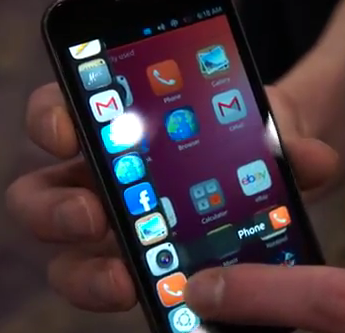


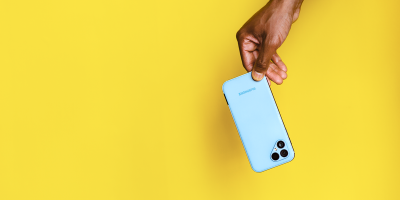

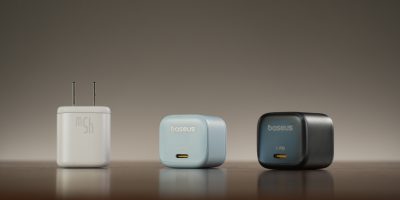
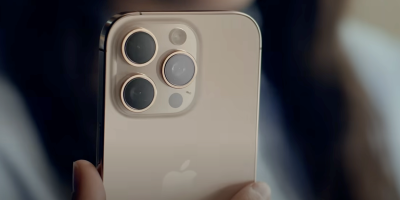

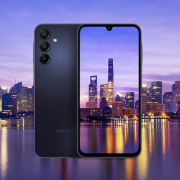


I think it will work. It might take Microsoft’s place in the mobile market, but it will sell at least a little. haha
I am a Fedora linux user myself, and have strayed away from Ubuntu within the past year.Must say though I do like what they are trying to do here with the design and look but I still agree with you Rob and don’t see this really getting any footing.. If anything, even with their potential upcoming failure, hopefully the other, more successful, mobile OS makers take a que from what they are trying to do and implement some cool looking stuff in future OS’s
I really like some features, like the notification bar… It seems like the best mesh between the old Gingerbread notification bar (quick settings) and the new Jelly Bean notification bar. I honestly want Ubuntu to succeed with this OS, but lets be real; with all the bugs that it has, they have a long way to go before they can make a splash in the mobile market.
Hmmm… looks nice.. but I feel it’s going to share WebOs’s fate…
Look at Chris making the rounds… Hello Chris. lol
More open source and openness to the mobile! If they make it work with decent hardware, they have one customer right here!
Not sure, but I suspect I would prefer the “Ubuntu for Android” approach over this one. Then you can still run Android apps but you also have the desktop mode in your pocket when a monitor is nearby.
Im sure it will be made possible
looks like it does need to improve a lot. depending on how it shapes up to be, will really determine how it stands in the market. as it is now, doesn’t really seem like it stands took much of a chance, and I’m not referring to the lag. the ui is just ugly and doesn’t seem as easy to navigate.
The wallpaper and colors are good. The UI looks very hard to navigate. Even Shuttleworth has problems with that several times on different videos.
Very impressive and well thought out UI. I’m not totally sold on their market strategy yet though. They imply this will go for the low end devices, but it looks like its more resource intensive than Android… I will be watching carefully how this develops with that in mind.
Explain to me how native code is more resource intensive than all of the abstraction layers and dalvik haphazardly retrofitted to touch devices
Apparently you dont really know what you are talking about. Dalvik was designed for mobile devices, touch screen or no.
Ubuntu mobile apps are written with an abstraction layer called QML which is a mix of xml, javascript and c/c++.
The Android os itself is a mix of java and native code. The java code runs JITed at near native speed.
But read what I said. It *looks* like its resource intensive and I’ll wait and see how that develops. Looks great but very slow and laggy as it stands now. We’ll See how much of that is fixable.
Android is very well optimized. Remember, Android runs pretty well on hardware 4 generation s older than this
ubuntu is all about laggy so it’s normal to be laggy on mobile devices aswell :)
Ubuntu runs great on my laptop
It’s difficult to dignify something that starts off with “you don’t really know what you’re talking about.” I respectfully disagree with some of your points. Ubuntu has legs.
I don’t think it’s that well thought actually. Lets look at it:
1. On the left you have apps launcher where you have your favourite apps. What if you want to run sth outside of that list? You may go to apps tab, but there doesn’t seem to be many space for apps. What if you have 100 apps like I have on Android? I’m sure you wouldn’t want 100 apps in the left launcher… Where can you view them all? Can you put them on your home screen somewhere? Are there 5 homescreens like I have on Android? Doesn’t seem so. You probably have to type the first few letters of the app in the search bar (using on-screen keyboard) to start it if you don’t have it in the launcher.
2. You have a photo app, you open a photo and then what? How do you tap “back”? How do you get back to the gallery view? Swipe from left, right, top, bottom? On Android it’s one “back” tap away. And how do you swipe to view the next photo or previous photo without accidentally opening the launcher or jumping to different application on a small phone screen (that phone doesn’t have active border like Blackberry Playbook by the way, so you have to swipe on the screen)?
3. You can move through your open apps by swiping from the right. OK. So you have opened a browser, a dictionary and 30 other apps. You are in the browser, you swipe to the right, you have dictionary and now what? How do you get back to the browser without swiping right 30 times?
I wish webOS was still around…
The screen freezing looks like my normal day w my charge..
I hope they don’t patent the changes they made to the notification bar, since that implementation seems superior to Android (and indeed anything else). Other than that, it just looks like someone’s integrated your market with your launcher Kindle Fire style – carriers might love that. I won’t.
Ubuntu is Open Sourced like Android….they might share some UI elements.
I suppose Android launchers that mimic Ubuntu OS might be released sooner than Ubuntu OS itself.
If you can install it on an old phone from two years ago it might be worth it for some. It resurects your old machines now. If it doesnt do the same for the phone then I dont see the point really.
It struggles on Galaxy Nexus (and I don’t mean that lag – some videos where they show apps are painful to watch!). Don’t count on running it on anything slower.
If android was this good on 1.5 then it would be even better now.. go Ubuntu.
Ubuntu I’m in. Hey I hate unity trust me I do. But I see some future in it. I won’t say it will kill my Android love. It would make me happy cause dual boot both damn. That’s what I’m talking about.
Any one pointing out lag. Are you serious? Android had its days. How it has grown too, but still lags. But see one thing about Ubuntu the community actually makes it.
I am exited to see this, I expect that it will end up evolving in to the more regular Ubuntu as the line between phone and computer blur. (Also hope they allow duel boot at some point.)
Duel boot – let the OSes fight for your device.
Here’s my observation from what I’ve seen and read about it so far. First the UI is very well done. It has the simplicity and elegance that all the Windows Phone fanboys all rage about, but I actually think that Ubuntu does it 100 times better than Microsoft. Their UI is cohesive and simple, yet offers a lot to really dig in and enjoy using. I was initially skeptical since I’m no Ubuntu fan (though I do use Linux Mint, which is based on Ubuntu, but I’m not a fan of Unity) but I was very impressed with Ubuntu for phones when I saw this video from Endgadget:
http://www.youtube.com/watch?v=sLtcj7FdIYA
And I felt that despite its late coming to the party it is already head and shoulders above WP as far as UI implementation and form factor. Plus, as Mark Shuttleworth noted in the above video, the business side would love to have a tool that you can manage employee phones, and since it’s the full Ubuntu OS put on a phone IT can manage a device just as easily as a desktop or server. That’s a clear advantage that I don’t think any smartphone on the market can boast. And just like Ubuntu for Android you can dock it and get the full Ubuntu desktop experience and essentially have your desktop with you and take it home or anywhere. This is a vision of the future of personal computing that I’ve thought would come for some time now. I just never thought it would be coming from the direction Canonical.
I still think that Canonical faces a tough battle to make this successful, but initial impressions are strong, and I get good vibes from Ubuntu for phones telling me it will find a niche that will make it work. I don’t think it’ll supplant Android or iOS in the consumer realm, but on the business front and for the power users it will be the mobile OS of choice in many quarters.
Personally I think I still prefer Android for the time being, but I think Canonical is headed in the right direction. And who knows? If this catches on and Linux Mint ends up on mobile devices I might just have to switch over. So I will root for Canonical to succeed in this endeavor as I think it holds a lot of promise.
Well, everything is head and shoulders above WP.
just to state the obvious ubuntu isnt all that popular either so to think it will blow the others away is absurd but it will be great nonetheless
well popular but not a desktop majority with the fact that well you know, its linux
To everyone talking about the performance issues in the video: keep in mind that it’s running on a Galaxy Nexus. That phone might be fine for JellyBean, but we’re talking about running a full-fledged operating system that turns into the ordinary Ubuntu desktop when plugged in to a laptop shell. Official phones will likely have far more powerful ARM processors.
The real strategy and selling point is not just the OS, but the strategy of having a convergent mobile device that can be put into numerous form factors using something small enough that you can carry it with you, and place all of your calls on.
As much as I love Ubuntu, I can see the likes of carriers learning enough Linux to lock out parts of your phone. So far Android has been safe, but I won’t hold my breath for Ubuntu. LOVE the look of the OS though. It looks insanely promising. Since it’s not part of the open handset alliance they can lock out whatever they want. Sad really… Unless you know how to program a phone!
I have almost everyday some screen freeze on my Samsung galaxy tab 2 7″ too. I’ve even had to reset the device twice to its original settings because the keyboard crashed. So I guess android isn’t ready for the masses either? Still a lot of bugs in it apparently.
I believe a lot in the approach of Ubuntu. Of course there still is some work, but I am impressed with what they’ve come up with after just one year of work.
I would really like to know how they are going to handle exchange for corporate users. Are they going to depend on Thunder Bird?
Also how they are going to handle device restrictions (lock codes) for those who have it setup on there exchange servers.
You can make a launcher look like it.
WebOS failed because it had limited palm hardware. It easily has the best UI though, was just as smooth as IOS or better when Android could only dream of being. If WebOS had been as open as Android… we would all be enjoying WEBOS instead of android right now.